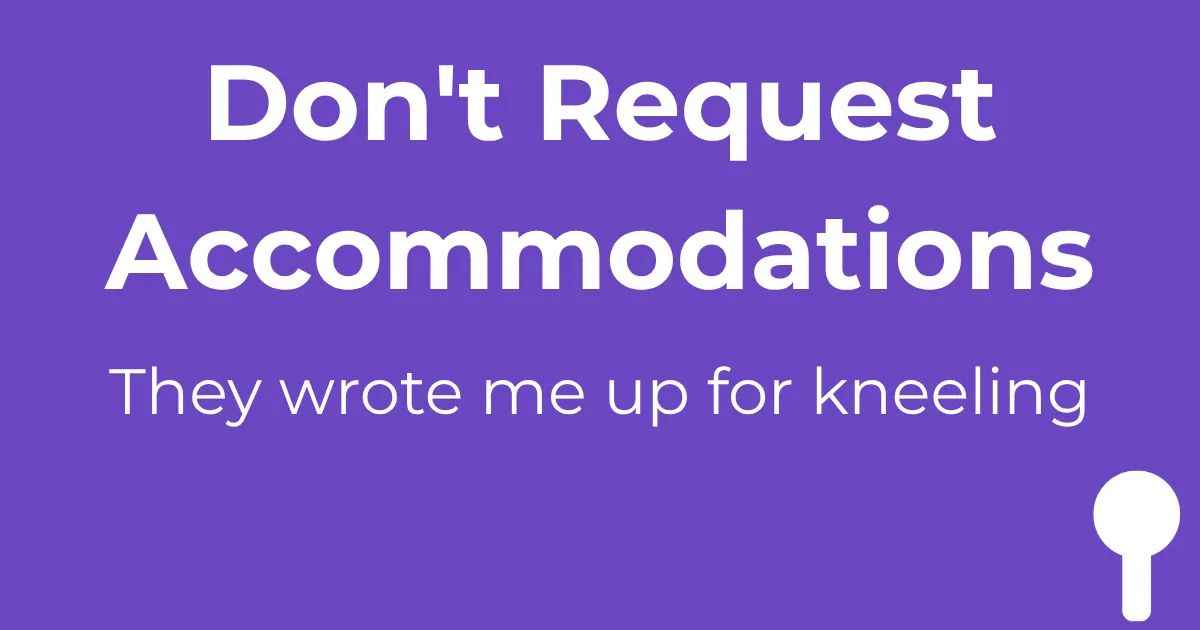
Why I Don't Request Accommodations as an Autistic Warehouse Worker
The accommodation I wanted
I wanted one accommodation at my warehouse job: to work at a station completely alone, with no other people nearby. Precisely to avoid small talk and the autistic burnout that comes from masking and performing all of the time. I just wanna work and get my paycheck then go home.
Why I didn't ask
My previous manager moved me around as much as 8 times in a single day—roughly 3 station rotations per lunch break, which I have 3 per day.
I never requested it. I know the ADA says I can ask for reasonable accommodations, but I'm afraid of what happens after. Asking would paint me as the "high-priority" worker in the area.
The sensory overload and executive function demand from constant transitions caused me to have multiple meltdowns and I'd spend the rest of the day not eating or talking to anyone.
Being portrayed as the "low-profile" and "unhappy" coworker helps me avoid unwanted attention and favoritism.
What happened when I tried / what I saw happen
I've watched what happens to coworkers who DO request accommodations. They often ask to be placed in easier areas with less rate and micromanagement pressure. The manager agrees most of the time, especially if they're seen as "low-priority" or less willing to work hard.
This is completely unfair—I've asked for this exact thing in the past with my previous manager, only to be sternly told to stay where I currently am and to meet my rate requirements. The only time I'm moved is if a certain area needs an extra pair of hands. Very selfish and inconsiderate.
What I got written up for
Most of my write-ups were for stuff that's completely allowed in the warehouse center, like taking short breaks and wearing light-sensitivity glasses (which I currently do).
At my previous warehouse location, not just once, but TWICE, I was written up for kneeling down on the floor simply to catch my breath and not overexert my hands and fingers.
Meanwhile, my coworkers around me are passing chargers to friends, using airpods at work, and talking on their phones with absolutely no repercussions.
It clearly felt like unequal enforcement. The rules weren’t applied evenly to me. I was being punished for accommodations I needed while while other coworkers broke actual rules without consequence.
What HR did
I talked directly to HR about my managers writing me up for kneeling and wearing my "sunglasses" to work (despite them clearly being blue-light blocking glasses). They dismissed it shortly after my response, claiming that since it was just a documented coaching—the first step before a write-up—it doesn't really matter all that much.
Completely ignoring the clear bias and unfair treatment they gave me while coworkers come into work every single day not wearing protective equipment and talking on the phone directly at their work stations. All without a single write up or warning.
What I did instead
So I switched warehouse buildings instead. It's specifically allowed for me to wear noise-canceling headphones now, so I do and don't talk to anyone about it. No smiling. No comforting small talk. Just getting through the day. Nothing else or anyone is on my mind.
Why I'm building Spoons
I'm Omari, a 23-year-old autistic adult who's been managing chronic burnout for 5+ years while working warehouse shifts.
This is why I built Spoons. To track what costs me energy. To know when I'm at 2 energy units and can't handle one more conversation.
Since one forced conversation + one sudden station switch can cost me the rest of my shift.
Launching April 2026. getspoons.app - One email when it's ready. No spam.
— Omari
Note: I'm sharing my personal experience as an autistic adult, not medical advice. If you're experiencing severe burnout or crisis, please consult a healthcare provider familiar with autism.
